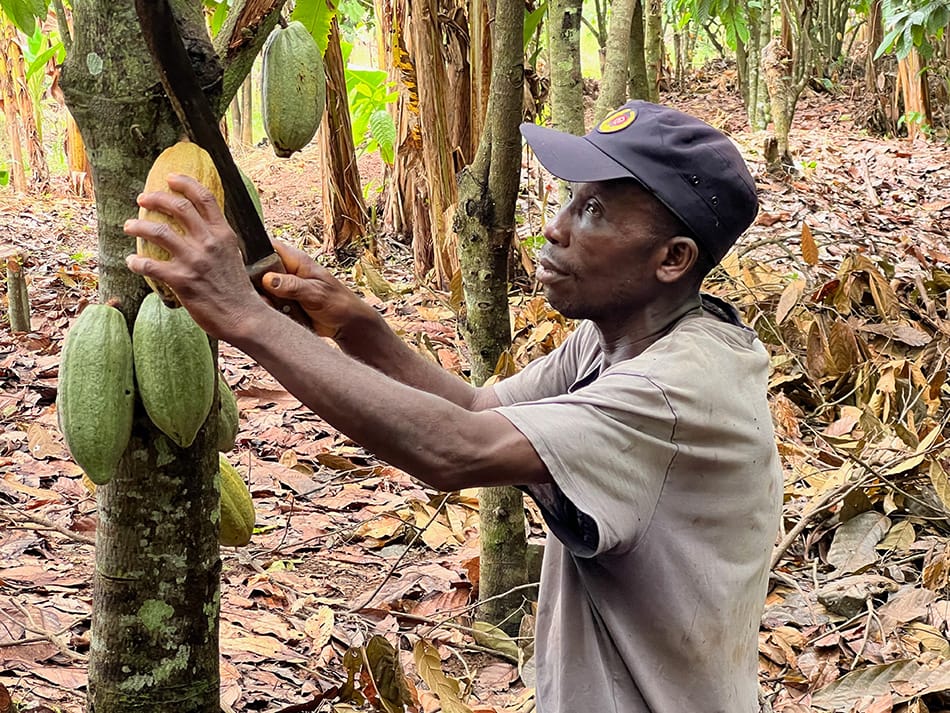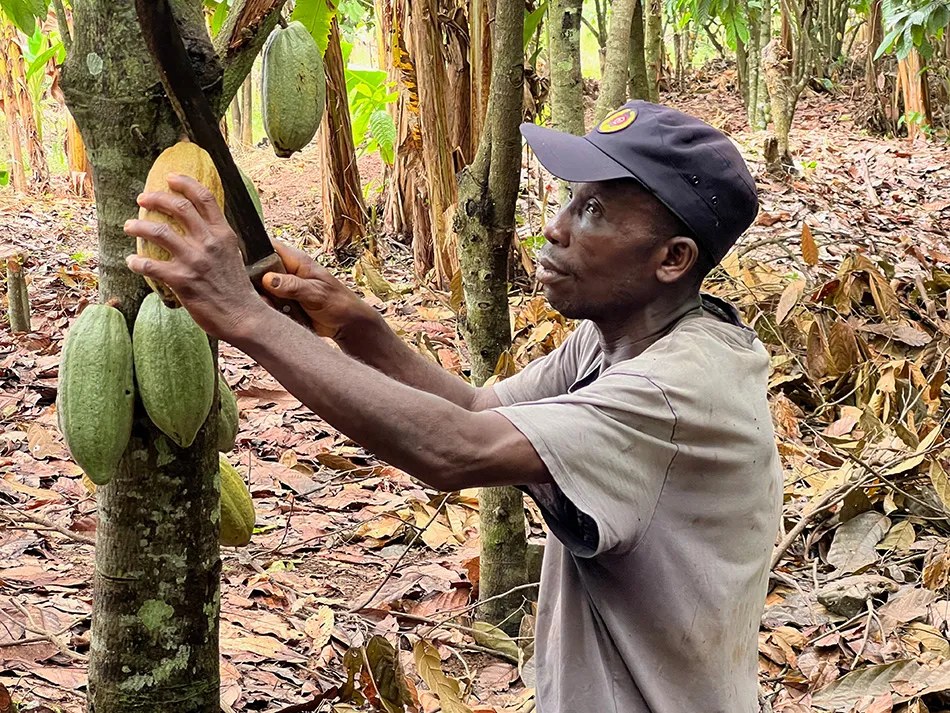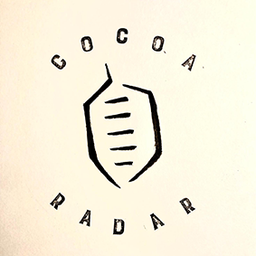In a follow-up to the session in Amsterdam, the three organizations released a joint report outlining further strategies for living incomes for cocoa farmers amid record-high cocoa prices.
In a recent @cocoadiaries substack post, Kwame Asamoah Kwarteng, an agricultural trade policy analyst and cocoa-chocolate industry expert says: “When discussing the plight of cocoa farmers in Ghana, Cote d’Ivoire, and other producing nations, many tend to attribute the situation to external economic shocks, lack of infrastructure, or even poor financial literacy among farmers.
“However, a deeper look into the history and structure of the global cocoa trade reveals something far more unsettling: this inequality is systemic, built over decades through policies, pricing models, and corporate structures that concentrate value in the hands of a few.”
Local cocoa processing
He cites examples of price control mechanisms that “never favours farmers”, a reluctance from the industry to support local cocoa processing, and certification programmes “that do not serve farmers.”
Kwarteng makes the point that while producing countries have the option to invest in their own chocolate industries, this remains counter-productive “without access to high-value markets and with tariffs eating into potential profits, such ventures struggle to scale.”
The eight-page report published by Fairfood, IDH, and the Living Income Community of Practice (LICOP) is a deeper summary of the session in Amsterdam, emphasizing the need for urgent action in the cocoa sector to ensure farmers earn a living income. Despite historically high prices, it highlights that 75% of global cocoa farmers do not earn a living income.
It also references that cocoa farmers in Ghana receive less than 40% of the market price due to government-imposed farmgate prices, making farming unattractive to youth.

At the event, cocoaradar.com attended, industry leaders and stakeholders discussed the need for improved value distribution and resilience in the face of climate risks and economic disparity.
The report discusses the challenge, including 'Actions on Farmer Income’ highlighting the need for collaboration among industry leaders, government, and civil society to address pricing, productivity, and climate change impacts in the cocoa sector.
Key points of the report include:
- The Dutch government advocates for the concept of living income in the Corporate Sustainability Due Diligence Directive and EU Deforestation Regulation.
- Jordy van Honk (a global director of Living Wage and Living Income at IDH) noted that while higher prices help some farmers, land size and declining productivity are significant constraints.
- IDH aims to scale successful income models and improve data-sharing to drive meaningful impact in the cocoa sector.
- Effective partnerships among the EU, Member States, and industry platforms are essential for implementing laws that benefit farmers.
“The future of production is at risk, with older farmers and deteriorating farms potentially leading to a decline in output within the decade. Supportive policies and financial incentives, including remunerative pricing, are crucial for enabling farmers to invest in their farms and improve resilience,” it states.
Good governance
The Voice Network raises the importance of good governance, regulations, and support systems for achieving a living income in cocoa farming. Managing director Antonie Fountain states, “It is essential for addressing poverty and ensuring sustainability in cocoa farming.”
The report concludes that the focus remains on the human aspect of cocoa production, emphasizing the need for fair practices and sustainable policies for farmers' livelihoods.
“Building a sustainable cocoa sector requires collaboration and partnerships to ensure farmers benefit from high prices and sustainability policies, focusing on fair pricing, productivity investment, and climate resilience.”
It urges that future discussions are essential for progress in this complex task.
cocoaradar.com is:
- Official Media Partner - World Cocoa Foundation Partnership Meeting in São Paulo, Brazil, 19-20 March 2025.
- Official Media Partner - Amsterdam Sustainable Cocoa Conference, Chocoa, 4-9 February 2025.
- 'From Our Desk. To Yours'
- Sign-up here for free and upgrade to an annual plan with a 35% discount


